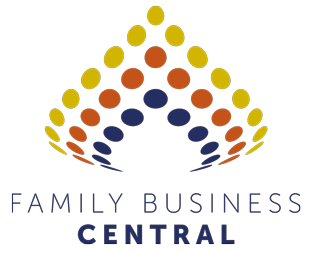
Let’s talk about the in-laws
The important role in-laws play in raising the next generation
One of the first questions we ask when working with a client on their family charter is, “Who is family?” It seems a simple question, but when there is a large family, extended family, or in-laws involved, it can be anything but straightforward.
Let’s talk about the in-laws
When someone marries (or partners with) a person in a family business, they step into a world where the family live and work together. We say love and money is a potent brew, so marrying into a family business can bring many a challenge for the new family member. It becomes more than a relationship between two people and instead extends to include an entire family.
Potentially, there are complexities involved with bringing in-laws into the family business. There are emotional and business factors at play, and getting it wrong can cause both the family and the business grief.
In this article, we look at what family businesses can do to engage, enable, accept, support, and love the in-laws while ensuring the longevity of the family business.
In-laws are important too
According to our Family Business Survey, in-laws are not afraid to ask the tricky questions. They often want to know where they fit within the family and the family business, as well as wanting to understand their role. They may also raise the issue of feeling excluded.
Are the in-laws important? The big answer is yes. In-laws are valuable and cherished members of the family. They are raising the family business’ next generation. They are instrumental in teaching their children to love the family and the business and often bring new ideas, energy, and perspectives. They come into the family from a foundation of love.
So why do the In-laws still question their sense of belonging in a family business?
Tensions can build when the family talks about “blood line” and protection of the family assets. The idea of keeping it in the family is important for the future of the family business, but how do they achieve harmony, balance, and openness when there is often a ‘them and us’ dialogue?
This is then exacerbated when the legacy and sustainability of the family business become the focus for conversations about the future. Decisions may be made for the “greater good” of the family without the direct inclusion of the in-laws or their opinion. In many situations, an in-law may not be a part of the work conversation, and so, feelings of exclusion can build. Confusion, alienation, distrust, and relationship breakdowns are the potential risks here.
What do we do with the in-laws?
This is a big question. Family Business Central has been through the process of creating hundreds of family constitutions over the years, and we see recurring themes appear. When the conversation turns to integrating an in-law into the family business, the conversation often turns to trust, communication, challenges, difference, acceptance, relationships and fear. Before we can begin the work on creating a family constitution, we must help the family unpack these underlying issues. Through transparency and honesty, it is possible to work through the process of building a working family charter and a happy, sustainable family legacy which also includes the in-laws.
What happens if things go bad?
We talk a lot about the importance of including and valuing in-laws because they are a vital part of ensuring a family business can pass through the generations. So if things go bad, there are many ways this can impact those involved from a personal and business standpoint. The marriage may be at risk if there is no clear way for personal and business relationships to coexist harmoniously.
Discontent can easily creep in if an in-law is left in the dark or has no real voice or influence. If they are not valued for who they are and their skills and efforts are not recognised, this can quickly lead to frustration.
The other side is that the family is at risk of losing a ‘blood’ family member if the in-law is not accepted or included, and the rules around sharing family business information are rigid and exclusionary, the risk is that both will walk away.
It is possible to protect the family business asset and achieve trusting and open relationships with the in-laws.
Treating in-laws well in a family business
Successful, multigenerational family businesses address the complex issues around bringing new members into the family business by:
- Building solid family governance structures that outline expectations and guidelines for coming into the family, and separate documentation for working in the family business, e.g. merit-based employment.
- Setting clear expectations that are agreed to by the whole family.
- Having conversations early to ensure issues are acknowledged, addressed and resolved without snowballing into something irreparable.
- Outwardly valuing the In-laws as family members and acknowledging them for what they bring, such as their contribution to raising and engaging the next generation, new ideas, energy and perspectives.
- Valuing transparency; otherwise, conspiracy theories will creep in and challenge trust.
- Informing the in-laws about the family business at a level agreed to by the family council and family forum.
Why do a family charter?
A family charter or family constitution is best practice for families in business to create a legacy, to look after the generations to come and to plan for health, happiness and prosperity. And if there are in-laws involved in the family and the business, a family charter becomes even more important.
Writing a family charter involves asking questions such as:
- Who works in the family?
- What happens with those who don’t?
- What happens with the children who want to follow in the family footsteps?
- How do we make rules that are fair?
It requires deep, considered thought and open conversation to get it right. It is also a process that can be tricky because the family business is where the family deals in love and money—the potent brew.
If you are interested in writing your family charter or would like to speak more about how we facilitate this process, please contact us. Or join us for one of our monthly online workshops.


